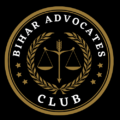In a landmark decision, the Bar Council of India (BCI) has issued stringent directives and cease-and-desist notices to curb the advertisement and solicitation of legal services by advocates through online platforms. This move follows a recent judgment by the Madras High Court, which expressed strong disapproval of lawyers soliciting work via websites in violation of BCI rules. The court’s directive mandated the BCI to take immediate action by issuing guidelines to State Bar Councils to commence disciplinary proceedings against such practices.
Key Directives Issued by the BCI
The BCI’s directive to State Bar Councils outlines several critical actions:
- Disciplinary Proceedings: Initiate disciplinary measures against advocates who advertise or seek work through online portals. This aligns with Rule 36 of the BCI Rules, which strictly prohibits such activities. Disciplinary actions could include suspension or removal from the roll of advocates.
- Complaints Against Online Platforms: File complaints against online service providers that facilitate the illegal advertisement of lawyers. This encompasses platforms like Quikr.in, Sulekha.com, and JustDial.com.
- Removal of Illegal Advertisements: Ensure the removal of advertisements posted by lawyers on these online platforms. The BCI has instructed coordination with government authorities to enforce this directive and prevent future violations.
- Compliance Deadline: Online platforms must remove all content violating Rule 36 of the BCI Rules within four weeks from the issuance of the circular.
- Cease and Desist Notices: Issued to CEOs of Quikr India Pvt. Ltd., Sulekha.com New Media Pvt. Ltd., Just Dial Limited, and Grotal.com, highlighting violations of Rule 36. These platforms must immediately cease and desist operations that enable the advertisement or solicitation of legal services by advocates.
The deadline for filing compliance reports by both State Bar Councils and the involved online platforms is set for August 10, 2024. Failure to comply will result in legal proceedings and potential penalties against the non-compliant organizations.
Understanding Rule 36 of the BCI Rules
Rule 36 of the BCI Rules explicitly prohibits advocates from soliciting work or advertising their services. The rule aims to maintain the dignity and decorum of the legal profession, ensuring that legal services are sought based on the merit and reputation of the advocates rather than aggressive marketing tactics. Violation of this rule can lead to severe disciplinary actions, including suspension or removal from practice.
The Role of Genuine Blogs and Portfolio Websites
In the wake of these directives, advocates can leverage genuine blogs and portfolio websites to enhance their visibility and attract clients without violating BCI rules. Here’s how:
- Educational Content: Lawyers can share informative articles, case studies, and legal insights on their blogs. This positions them as thought leaders in their field, attracting clients who seek knowledgeable and reputable advocates.
- Showcasing Expertise: Portfolio websites allow lawyers to showcase their experience, successful cases, and areas of specialization. This helps potential clients understand the lawyer’s capabilities and build trust.
- SEO Optimization: By optimizing their websites for search engines (SEO), lawyers can increase their online visibility. This involves using relevant keywords, ensuring a user-friendly website structure, and regularly updating content to rank higher in search engine results organically.
Ad

Manipulation of Google Rankings by Online Platforms
Online platforms like Quikr, Sulekha, and JustDial often manipulate Google rankings by employing tactics that overshadow genuine legal websites. Here’s how they do it:
- Aggressive SEO Practices: These platforms invest heavily in SEO, using a high volume of keywords, backlinks, and other strategies to rank higher on Google. This often pushes genuine legal websites lower in search results.
- Paid Listings: Platforms offer paid listings that guarantee top positions in search results, irrespective of the actual merit or quality of the legal service provided.
- User Reviews and Ratings: They feature user reviews and ratings, which can be manipulated to favor certain listings, thus affecting the perception of potential clients.
Conclusion
The BCI’s crackdown on the solicitation of legal services through online platforms is a significant step towards upholding the integrity of the legal profession. While this move curtails unethical advertising practices, it also opens avenues for advocates to engage with potential clients through genuine, content-driven strategies. By focusing on educational content, showcasing expertise, and employing ethical SEO practices, lawyers can maintain a strong online presence and attract clients without violating professional guidelines.
As the legal landscape evolves, it is crucial for both legal professionals and online platforms to adhere to ethical standards and regulations, ensuring that the dignity of the profession is preserved while meeting the needs of those seeking legal assistance.
- Bar Council of India rules
- BCI advertisement ban
- Legal services solicitation
- Madras High Court ruling
- Lawyer advertising regulations
- Rule 36 BCI
- Online legal services ban
- Disciplinary actions for lawyers
- BCI cease and desist notice
- Ethical legal practices
- Lawyer marketing restrictions
- Legal profession regulations
- BCI compliance guidelines
- State Bar Council directives
- Lawyer portfolio website
- Legal blog content
- SEO for lawyers
- Lawyer website optimization
- Genuine legal blogs
- Online platforms for lawyers
- Legal service advertisements
- Soliciting legal work online
- BCI legal advertising rules
- Legal profession ethics
- Lawyer website best practices
- Law firm marketing
- Online legal directories
- Legal service listings
- Lawyer reputation management
- Professional conduct for lawyers
- Legal services SEO
- BCI disciplinary proceedings
- Lawyer client acquisition
- Legal service platforms ban
- Ethical SEO for lawyers
- Lawyer profile optimization
- Legal website content strategy
- Professional legal conduct
- Legal practice online presence
- Lawyer marketing ethics
- BCI Rule 36 enforcement
- Online legal service compliance
- Lawyer service ratings ban
- Legal profession decorum
- Ethical online marketing
- Legal service platform penalties
- Genuine legal service listings
- Legal profession integrity
- Online legal service prohibition
- Lawyer website SEO tips
